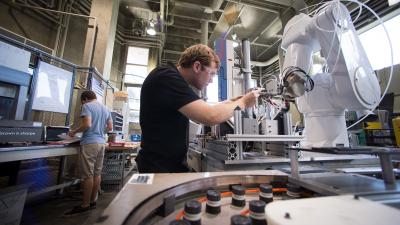Carbon Capture Research Receives $3 Million from U.S. Department of Energy
TROY, N.Y. — The United States Department of Energy (DOE) has announced that a research project at Rensselaer Polytechnic Institute is one of eight in the nation recently selected to receive federal funding geared toward the development of “novel and enabling carbon capture transformational technologies.”









